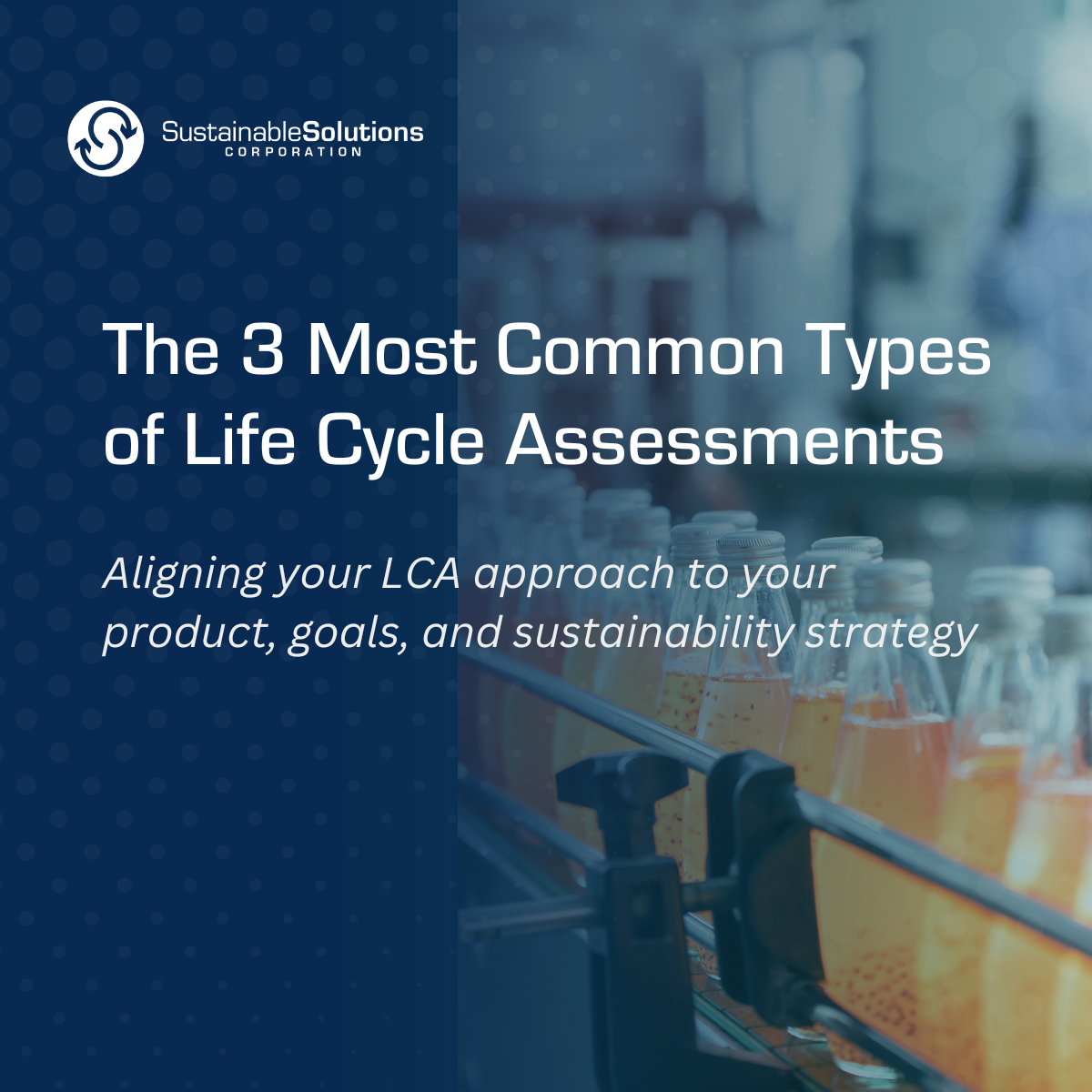A concise glossary to help you speak the language of sustainability with confidence
Sustainability conversations can get technical — fast. With so many acronyms and specialized terms, it’s easy to feel lost or overwhelmed. But understanding this language is essential for clear communication, informed decision-making, and building trust with your stakeholders.
Whether you're conducting a Life Cycle Assessment (LCA) or preparing an Environmental Product Declaration (EPD), this glossary will help you decode key concepts and confidently lead the conversation.
Quick Links
Life Cycle Assessment Basics
LCA – Life Cycle Assessment
A holistic analysis of the potential environmental impacts and emissions from the entire life cycle of a product or material.
LCI – Life Cycle Inventory
Phase of an LCA involving the development and quantification of the inputs and outputs for a product throughout its life cycle.
LCIA – Life Cycle Impact Assessment
Phase of an LCA which provides the potential environmental impacts for a product throughout its life cycle.
Cradle-to-Gate
Scope of an LCA study covering all unit processes from raw material extraction and processing to the manufacturing gate.
Cradle-to-Gate with Options
Scope of an LCA study covering all unit processes from raw material extraction and processing to the manufacturing gate plus other optional life cycle stages such as distribution or end-of-life.
Cradle-to-Grave
Scope of an LCA study covering all life cycle stages from raw material extraction and processing, manufacturing, distribution, use, and end of life.
Carbon & Emission Metrics
AP- Acidification Potential
Acidification is a result of processes that contribute to increased acidity of water and soil systems, frequently through air emission that contribute to acid rain. The largest contributors are sulfur dioxide and nitrogen oxide.
Embodied Carbon
The greenhouse gas emissions resulting from the raw materials, manufacturing, and transportation of a material or a product.
EP – Eutrophication Potential
Eutrophication is the fertilization of surface waters by nutrients that were previously scarce.
FFD – Fossil Fuel Depletion
Measures the depletion of fossil fuel resources in terms of megajoules.
GHG – Greenhouse Gas
Gases which trap heat in the atmosphere. Examples include carbon dioxide (CO2), methane (CH4), nitrous oxide (N2O).
GWP – Global Warming Potential
A life cycle assessment indicator which measures the warming potential of a gas. Measured in carbon dioxide equivalents (CO2 eq.), this value allows comparison of the global warming impacts of different gases.
ODP – Ozone Layer Depletion Potential
Certain chemicals, when released into the atmosphere, can cause depletion of the stratospheric ozone layer. This impact measures the potential of the chemicals to deplete the ozone.
PCF – Product Carbon Footprint
Measures the total greenhouse gas emissions generated by a product. Can be cradle-to-gate for suppliers or cradle-to-grave for final products.
SP – Smog Formation
Under certain climatic conditions, air emissions from industry and transportation can be trapped at ground level where, in the presence of sunlight, they produce photochemical smog.
Declarations & Standards
CEN - European Committee for Standardization
Develops European technical standards such as EN 15804+A2/AC, EN 50693
EPD – Environmental Product Declaration
An independently verified document that discloses the environmental life cycle impacts of a product.
ISO – International Organization for Standardization
Nongovernmental organization which develops and publishes international standards. Core standards for LCA include ISO 14040 and ISO 14040. Core standards for EPDs can include ISO 14025; ISO 21930 (not 20); and EN 15804+A2/AC, EN 50693
ISO 14040: Environmental management – Life cycle assessment – Principles and framework. This is a standard for Life Cycle Assessments (LCA).
ISO 14044: Environmental management – Life cycle assessment – Requirements and guidelines. This is a standard for Life Cycle Assessments (LCA).
ISO 14025: Environmental labels and declarations – Type III environmental declaration. This is the standard for Product Category Rules (PCR) and Environmental Product Declarations (EPD).
ISO 14067: Greenhouse gases – Carbon footprint of products – Requirements and guidelines for quantification. This is the standard for Product Carbon Footprints (PCF).
PCR – Product Category Rule
A standard set of rules, requirements, and guidelines for developing Environmental Product Declarations (EPDs). PCRs provide a specific framework for producing EPDs for each product category. PCRs are developed by Program Operators such as UL, ASTM, NSF, IBU, etc.
Supporting Terms
LCA Optimization - The reduced impacts measured through an LCA that result from product design and manufacturing improvements.
SDS – Safety Data Sheet
Includes information such as the properties of each chemical; the physical, health, and environmental health hazards; protective measures; and safety precautions for handling, storing, and transporting the chemical.
SPI – Sustainable Product Innovation
Using lifecycle thinking and sustainability analysis to design more sustainable products. Typically integrated into the stage-gate process for new product development.
Your Sustainability Vocabulary
As sustainability continues to shape industries and consumer expectations, fluency in this terminology empowers you to lead with clarity and confidence. This glossary is a first step toward cutting through the jargon and focusing on driving meaningful change. Click here for more resources to support your sustainability journey.
Keep Reading
Meet the Expert
Cara Vought, LCACP
Senior Technical Consultant
Cara has over 13 years of experience in product stewardship and corporate sustainability strategy. She specializes in developing life cycle assessments (LCAs) and product carbon footprints, conducting independent LCA reviews to ISO standards, supporting industry associations and collaboratives in program development, and facilitating audits for sustainable manufacturing initiatives and LEED certifications.
She earned a Bachelor of Science in Chemical Engineering from the University of Delaware, with minors in Sustainable Energy Technology and Environmental Engineering. Cara also served as an adjunct professor at Jefferson University, where she taught architecture and design students how to think about materials sustainably. She believes that sustainability is an ever-evolving field that requires continuous learning and adaptation. With a passion for education, she works closely with SSC’s clients to help them expand their knowledge and integrate sustainability into their business practices.
Stay Informed. Drive Change.
Sign up to get insights from our team of experts, industry trends and inspiration—delivered to your inbox.
We respect your privacy and will never share your information. Unsubscribe anytime.







